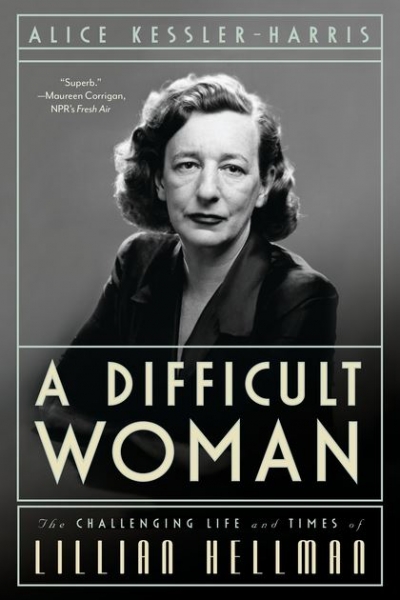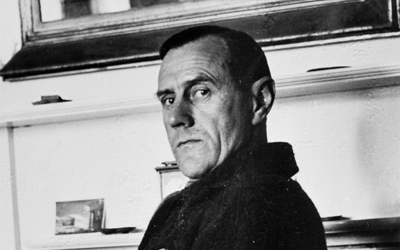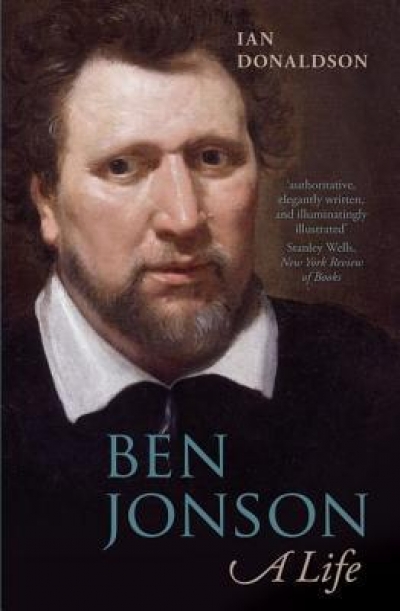Theatre
Over the past ten years, Melbourne and Sydney have experienced a revolution in the aesthetics of theatre – perhaps only the second major one since 1945. After World War II, the British helped to get us back on our cultural feet, the high point being the establishment of the Australian Elizabethan Theatre Trust in 1954. Along came a bunch of Poms or Pommie-mi ...
‘If men are masters of their fate,’ asks the American feminist Susan Faludi, ‘what do they do about the unspoken sense that they are being mastered, in the marketplace and at home, by forces that seem to be sweeping away the soil beneath their feet?’
... (read more)Jean Genet’s Les bonnes (The Maids, 1947) is inspired by a true story. Two maids, sisters, murder their wealthy mistress and are found by authorities soon after, huddled in the same bed. Incest as well? So it is odd to be confronted with a drama that essentially addresses the audience’s intellect, spring-boarding out of a melodramatic re-enac ...
There is at least one bravura performance in Melbourne right now, and it warranted a much larger house than we saw last week (February 1), when Southbank Theatre was only half full. The Royal Shakespeare Company’s production of William Shakespeare’s long poem The Rape of Lucrece was first seen in Australia during the recent Sydney Festival, but it was pre ...
Was there ever an Australian poet who drank so deep of that turbid spring, enthousiasmos, Aristotelian enthusiasm, as Dorothy Porter? From the grungy vitality of her early collections, to the exuberant embrace of popular genre fiction in her five verse novels, to the high, passionate tone of her lyrics, libretti, and later collections, she was never less than ...
How is it that the sordid ‘familial romance’ of Laius, Jocasta, and Oedipus, or ‘daddy, mommy, and me’, came so completely to define the concept of desire in the modern West? For Deleuze and Guattari, authors of The Anti-Oedipus, that is the true sphinxian riddle at the heart of the Oedipus materials, the myth, and its subsequent interpretations from Sophocles to Freud and beyond. Forty years after the publication of their famous broadside against mainstream Freudian psychoanalysis, and notwithstanding a significant and growing body of sceptical opinion, the Oedipal complex is still widely regarded as humanity’s universal history. In fact, argue Deleuze and Guattari, it is nothing of the sort. Rather, they say, Oedipal desire is an historically contingent, socio-cultural consequence of capitalism. When psychoanalysts, historians, sociologists, anthropologists, ethnologists, and even dramatists reach for an Oedipalised analysis of social relations, they not only violently disfigure our understanding of desire, but also reinforce and normalise the omnivorous progress of capitalism and its patriarchal social forms.
... (read more)A Difficult Woman: The Challenging Life and Times of Lillian Hellman by Alice Kessler-Harris
By the time I found him twenty-five years ago in the Adelaide Hills, Glen McBride was old, tiny, spry, and ready to boast about his career. I doubt many readers have heard of this little man or know of his pivotal role in the literature of this country. That’s what had me knocking at his door. And though he disowned none of it in the hours we spent ranging over his life and times, what really perked him up was confessing his part in the salami and sausage business in that part of the world.
... (read more)I first saw Summer of the Seventeenth Doll in 1957 in London, of all places. I remember feeling some pride in seeing the symbolic kewpie doll presiding over the New Theatre in the heart of the West End. June Jago’s performance as Olive has stayed with me over the years; Philip Hope-Wallace, the Guardian reviewer, described her as ‘all chin and elbows, but as genuine a dramatic actress as you could find’, which suggested an element of surprise that she should be ‘found’ in Australia. Jago had been in the original 1955 Union Rep production and placed her stamp on Olive: she was to be a hard act to follow. When The Doll came to London, it had already won itself a unique place in Australian drama, but there had been some concern about how the Brits would receive a play about rough canecutters and free-and-easy barmaids. But critics like Hope-Wallace – and the influential Kenneth Tynan – hailed ‘this harsh, cawing, strongly felt play’. The imperial imprimatur sealed the success of The Doll. Its later failure on Broadway could be dismissed as a judgement on American audiences rather than on the play.
... (read more)


